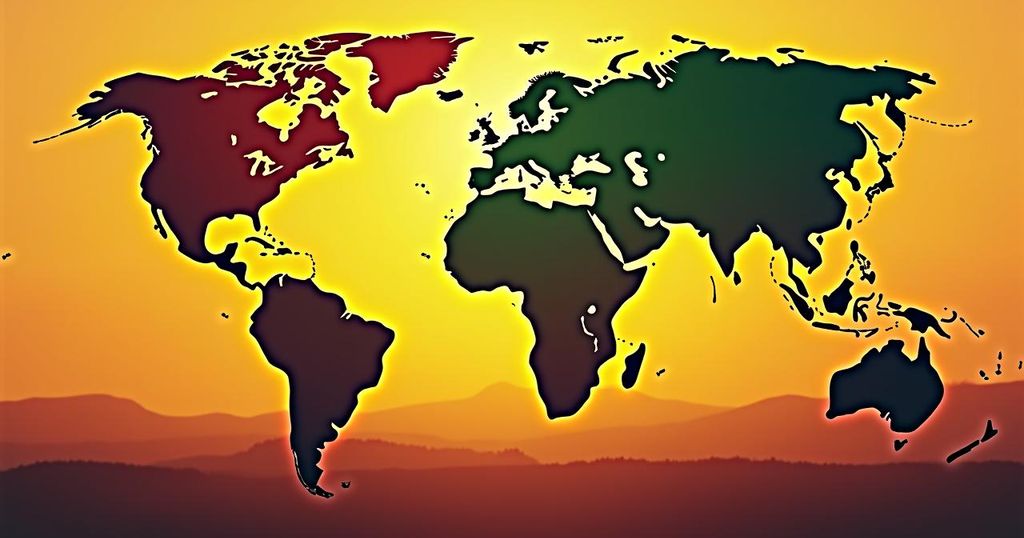The Regional Implications of the Ethiopia-Somaliland MOU: A Nine-Month Retrospective
Nine months after Ethiopia’s MOU with Somaliland, regional tensions escalate, influenced by Egypt’s military agreement with Somalia and the rising threat of Al-Shabaab. The MOU has strained Somalia and Ethiopia’s relations, leading to disdain from Somali leadership, while external actors like Turkey and Egypt vie for influence amidst the growing instability. The transition of AU military efforts to combat extremism lacks Ethiopian support, heightening security risks across the Horn of Africa.
Nine months following the January memorandum of understanding (MOU) between Ethiopia and Somaliland, the dynamics of the Horn of Africa remain precarious. This agreement granted Ethiopian naval forces access to a stretch of Somaliland’s coastline, while Somaliland’s authorities asserted that Ethiopia would consider recognizing their independence. Since then, the situation has worsened, particularly due to actions taken by external states, such as a defense agreement signed between Egypt and Somalia, which encompassed the provision of military equipment and personnel to Somalia. The escalation of military involvement from outside players underscores the fragility of regional politics, where a minor incident may quickly escalate into broader conflict. The MOU disrupted the diplomatic thaw that had begun between Ethiopia and Somalia back in 2018 under Ethiopian Prime Minister Abiy Ahmed’s leadership. The Somali President Hassan Sheikh Mohamud has consistently condemned the MOU as an infringement on Somalia’s sovereignty. In retaliation, he declared Ethiopia one of Somalia’s foremost adversaries and invalidated the agreement through legislation, while also rallying diplomatic support against it. Amidst these tensions, relations between Somaliland and Ethiopia flourished, highlighted by mutual exchanges of ambassadors and cooperative security arrangements. In the meantime, Turkey has reinforced its alliance with Somalia through military agreements purportedly aimed at bolstering Somalia’s maritime capabilities, yet perceived as a counterbalance to Ethiopian influence. Concurrently, Egypt has staunchly opposed the Ethiopia-Somaliland MOU, advocating for Somalia’s position and augmenting its assistance to combat terrorism and bolster security, especially given the shared interest in curtailing Ethiopian expansionism linked to the Grand Ethiopian Renaissance Dam dispute. The rise of Al-Shabaab, despite ongoing efforts to suppress the group, has complicated the security situation further. The militant organization has taken advantage of the instability following the MOU signing, intensifying its recruitment and operations, including high-profile attacks within Somalia. As the African Union transitions its military mandate from the current AU Transition Mission in Somalia to the proposed AU Support and Stabilization Mission in Somalia (AUSSOM) in January 2025, the absence of Ethiopian military forces jeopardizes the efficacy of counterterrorism efforts and the stability of the region. In this context, the potential for armed confrontations between Ethiopian and Egyptian troops along the Somali border remains a tangible risk. Furthermore, the ongoing hostilities may foster an environment enabling Al-Shabaab to expand its influence and illegally target civilians. One potential avenue for resolution could involve the involved states recalibrating their positions, thereby fostering collaboration rather than conflict. The prospect of a fruitful negotiation round in Ankara may open paths towards stabilization, minimizing the escalation of violence. Nevertheless, the competition among regional powers necessitates vigilant observation as decisions made in this context have far-reaching implications. The stakes are high, and maintaining regional peace and prosperity hinges upon greater cooperation addressing the underlying challenges affecting the Horn of Africa.
The current geopolitical landscape in the Horn of Africa is characterized by heightened tensions stemming from Ethiopia’s memorandum of understanding with Somaliland, which has profound implications for regional stability and international interests. Ongoing rivalries among key players, including Somalia, Egypt, and Ethiopia, intertwine with the operations of extremist groups like Al-Shabaab, complicating counterterrorism initiatives and broader security objectives. The convergence of military, diplomatic, and economic interests in this fragile region necessitates close scrutiny as external actors further complicate existing dynamics.
In summary, the ongoing regional tensions following the Ethiopia-Somaliland MOU underscore a complex interplay of diplomatic, military, and security concerns within the Horn of Africa. The erosion of previously established relationships and the rise of external involvement exacerbate the precarious state of affairs, creating a potential environment conducive to conflict. A concerted effort towards cooperation among the involved states is crucial to mitigate the risk of violence and establish a foundation for stability and growth in the region.
Original Source: www.atlanticcouncil.org




Post Comment